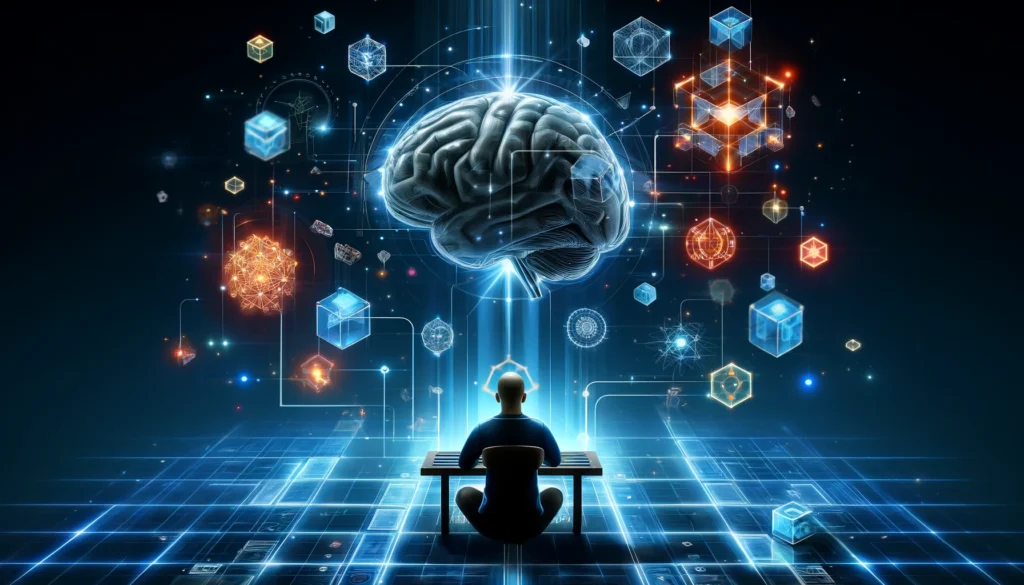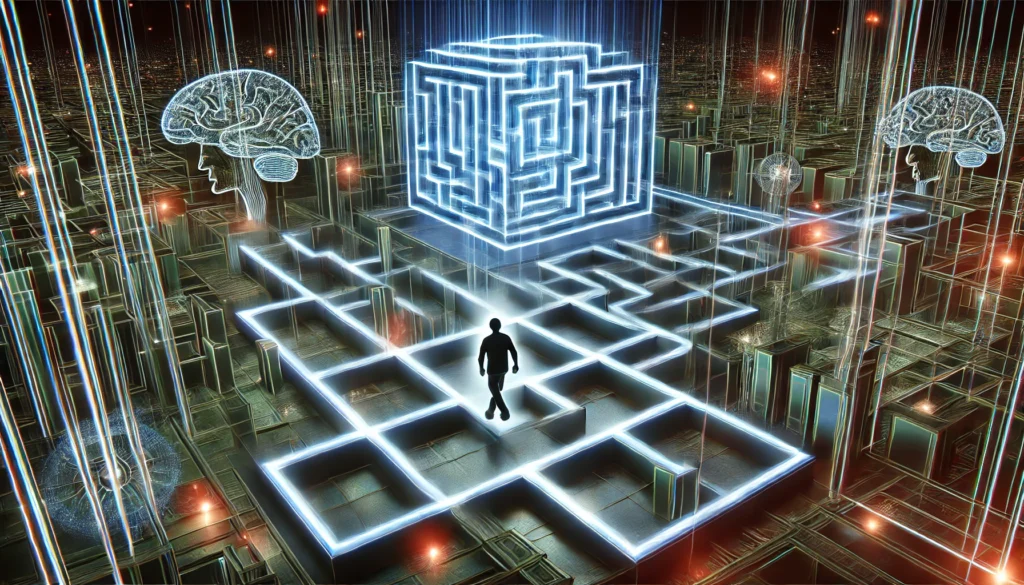Brain games, or cognitive training games, are designed to stimulate various mental processes, including memory, attention, problem-solving, and critical thinking. These games are grounded in neuroscience and cognitive psychology, offering exercises that challenge the brain, promote neuroplasticity, and potentially improve cognitive function.
You may also like: Top Apps to Boost Your Brainpower
Understanding Neuroplasticity
Neuroplasticity is the brain’s ability to reorganize itself by forming new neural connections throughout life. This concept is fundamental to the effectiveness of brain games. By engaging in exercises that challenge the mind, individuals can promote the growth of new neural pathways, enhancing cognitive flexibility and resilience. This adaptability of the brain is what makes cognitive training through brain games a promising avenue for mental enhancement.
Cognitive Psychology and Brain Games
Cognitive psychology studies how people perceive, remember, think, and learn. Brain games are often designed based on principles from this field. By understanding how the brain processes information, developers can create games that specifically target and improve certain cognitive functions. This scientific backing ensures that brain games are not just entertaining but also beneficial in enhancing mental capabilities.
Evidence of Cognitive Improvement
Research suggests that engaging in regular mental exercise through brain games can lead to improvements in cognitive abilities. A study published in the Journal of Cognitive Enhancement found that adults who engaged in brain training exercises showed significant improvements in working memory and executive function compared to those who did not. Additionally, other studies have highlighted improvements in attention span, problem-solving skills, and even speed of information processing, underscoring the potential benefits of consistent brain game use.
Historical Context and Evolution of Brain Games
The concept of exercising the brain dates back to ancient times. Philosophers like Socrates and Plato emphasized the importance of mental exercise, while traditional puzzles like Sudoku and crosswords have long been popular methods for maintaining mental agility.
Ancient Practices of Mental Stimulation
In ancient cultures, mental exercises were often intertwined with philosophical and educational practices. Socrates and his method of questioning aimed to stimulate critical thinking and self-reflection. Similarly, ancient Chinese scholars practiced memory and concentration exercises as part of their scholarly activities, recognizing the importance of mental discipline and agility in their pursuits.
The Role of Traditional Puzzles
Traditional puzzles, such as crosswords, Sudoku, and chess, have been cherished for their ability to challenge and engage the mind. These activities have long been recognized for their potential to enhance cognitive processes like pattern recognition, strategic thinking, and memory retention. Even before the digital age, these puzzles provided an accessible means for individuals to maintain and improve their mental fitness.
Technological Advancements and Modern Brain Games
With the advent of technology, brain games have evolved significantly. The digital age has ushered in a plethora of apps and online platforms, making cognitive training more accessible than ever before. Today, brain games are available in various formats, from mobile apps to online platforms, offering a wide range of exercises to suit different preferences and cognitive needs. This evolution has allowed for more personalized and targeted cognitive training, catering to the unique needs and goals of individuals.
Current Trends in Brain Games
The brain game market is booming, driven by a growing awareness of mental health and cognitive fitness. Several trends are shaping the industry, including:
Personalization in Brain Training
Many apps now offer personalized training programs based on individual cognitive profiles, ensuring a tailored approach to mental fitness. By assessing a user’s strengths and weaknesses, these apps can create customized routines that target specific areas for improvement, maximizing the efficacy of the training. This personalization helps maintain user engagement and provides a more effective training experience.

Gamification for Enhanced Engagement
Incorporating game-like elements, such as rewards, badges, and leaderboards, enhances user engagement and motivation. Gamification transforms cognitive training into an enjoyable and competitive experience, encouraging users to consistently participate and strive for improvement. This trend has proven effective in retaining users and promoting regular mental exercise.
Integration with Wearable Technology
Some brain games now integrate with wearable devices, providing real-time feedback on cognitive performance and overall brain health. This integration allows users to track their progress seamlessly and receive insights into their mental fitness. Wearable technology can also monitor physiological indicators, offering a holistic view of an individual’s cognitive and physical health.
Addressing Mental Health Through Games
In addition to cognitive enhancement, many brain games now address mental health issues, such as stress and anxiety, offering exercises designed to promote relaxation and mindfulness. These games often include elements of meditation, breathing exercises, and mood tracking, providing a comprehensive tool for both cognitive and emotional well-being. This focus on mental health reflects the growing understanding of the interconnectedness of cognitive and emotional wellness.
Top Brain Games and Apps for Adults
With countless options available, choosing the right brain games can be overwhelming. Here are some of the top-rated apps and platforms that offer challenging and effective brain workouts:
Lumosity
Lumosity is one of the most popular brain training apps, offering a variety of games designed to improve memory, attention, flexibility, and problem-solving skills. The app provides personalized training programs and tracks progress over time, making it a comprehensive tool for cognitive enhancement. Users appreciate its user-friendly interface and the scientific basis behind its games, which are developed by neuroscientists and cognitive psychologists.
Elevate
Elevate focuses on improving communication skills, cognitive abilities, and productivity through a series of fun and engaging games. The app offers a personalized training program and provides detailed performance feedback, helping users track their improvement. Its emphasis on real-world skills, such as reading comprehension and math, sets it apart from other brain games, making it particularly appealing for those looking to enhance their everyday abilities.
Peak
Peak offers a wide range of brain games designed to challenge different cognitive skills, including memory, attention, and mental agility. The app’s unique feature, “Coach,” provides personalized insights and tips to help users maximize their cognitive potential. With its visually appealing interface and diverse game selection, Peak caters to users of all interests and skill levels, offering a comprehensive cognitive training experience.
CogniFit
CogniFit offers a scientifically validated platform for cognitive assessment and brain training. The app provides personalized training programs and offers insights into cognitive performance, making it a valuable tool for those looking to enhance their mental fitness. Its focus on cognitive assessment allows users to understand their strengths and areas for improvement, enabling more targeted and effective training.
Brain Age
Inspired by the popular Nintendo DS game, Brain Age offers a series of exercises designed to improve mental agility and keep the brain sharp. The app provides a fun and engaging way to challenge cognitive abilities and track progress over time. Its nostalgic appeal and entertaining exercises make it a favorite among users seeking a lighthearted yet effective cognitive workout.
Practical Tips for Maximizing the Benefits of Brain Games
To get the most out of brain games, consider the following tips:
Set Clear Goals
Define what you hope to achieve through brain training, whether it’s improving memory, enhancing focus, or boosting problem-solving skills. Having specific goals helps maintain motivation and provides a clear direction for your training efforts. By understanding your objectives, you can select games and apps that best align with your personal cognitive enhancement needs.

Consistency is Key
Regular practice is essential for cognitive improvement. Aim for short, daily sessions to keep the brain engaged and challenged. Consistency is crucial in forming new neural connections and solidifying cognitive gains. By incorporating brain games into your daily routine, you ensure steady progress and long-term benefits.
Mix It Up
Engage in a variety of games that target different cognitive skills to ensure a well-rounded mental workout. Diverse activities challenge the brain in multiple ways, preventing monotony and promoting comprehensive cognitive enhancement. By varying your brain games, you can address multiple areas of cognition, from memory and attention to creativity and critical thinking.
Track Progress
Use apps that offer performance tracking to monitor your improvement and adjust your training program as needed. Tracking progress provides valuable insights into your cognitive development and helps identify areas for further focus. By regularly reviewing your performance, you can make informed decisions about your training strategy and celebrate your achievements.
Complement with a Healthy Lifestyle
Cognitive training should be part of a holistic approach to mental fitness. Maintain a balanced diet, exercise regularly, and prioritize quality sleep to support overall brain health. A healthy lifestyle enhances the effectiveness of brain games, as physical well-being directly impacts cognitive function. By combining cognitive training with healthy habits, you optimize your mental and physical fitness.
The Future of Brain Games
The future of brain games is promising, with ongoing advancements in technology and neuroscience paving the way for more sophisticated and effective cognitive training tools. As research continues to uncover the potential benefits of brain games, these tools will likely become an integral part of mental fitness regimens for individuals of all ages.
Technological Innovations
Emerging technologies, such as virtual reality and artificial intelligence, are expected to revolutionize brain games by providing immersive and highly personalized training experiences. These innovations could offer new ways to engage users and tailor cognitive exercises to individual needs, making brain training more effective and enjoyable.
Expanding Research and Validation
As the field of brain games grows, so does the body of research exploring their efficacy. Continued studies will help validate the cognitive benefits of these games and refine their design based on scientific findings. This ongoing research will bolster the credibility of brain games and encourage their widespread adoption as a legitimate tool for mental fitness.

Integration into Everyday Life
With the increasing recognition of the importance of mental fitness, brain games are likely to become a standard component of daily routines. Just as physical exercise is a common part of modern lifestyles, cognitive training through brain games may become a regular practice for maintaining mental health and sharpness. This integration into everyday life will further emphasize the significance of mental fitness in overall well-being.
In conclusion, brain games offer a fun and engaging way to enhance cognitive abilities and maintain mental fitness. By incorporating these games into your daily routine, you can promote neuroplasticity, improve cognitive function, and support overall brain health. Whether you’re a health and wellness coach, science journalist, or biohacker, embracing brain games can help you achieve your mental fitness goals and stay sharp in a demanding world.
Further Reading:
10 best apps to train your brain
Brain Training Games Enhance Cognitive Function in Healthy Subjects
Give Your Mind a Workout! 101 Brain Teasers That’ll Improve Your Memory
Important Note: The information contained in this article is for general informational purposes only, and should not be construed as health or medical advice, nor is it intended to diagnose, prevent, treat, or cure any disease or health condition. Before embarking on any diet, fitness regimen, or program of nutritional supplementation, it is advisable to consult your healthcare professional in order to determine its safety and probable efficacy in terms of your individual state of health.
Regarding Nutritional Supplements Or Other Non-Prescription Health Products: If any nutritional supplements or other non-prescription health products are mentioned in the foregoing article, any claims or statements made about them have not been evaluated by the U.S. Food and Drug Administration, and such nutritional supplements or other health products are not intended to diagnose, treat, cure, or prevent any disease.


